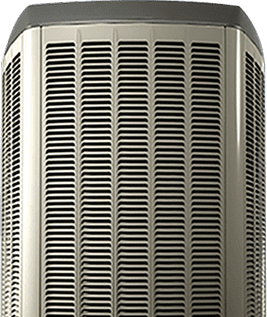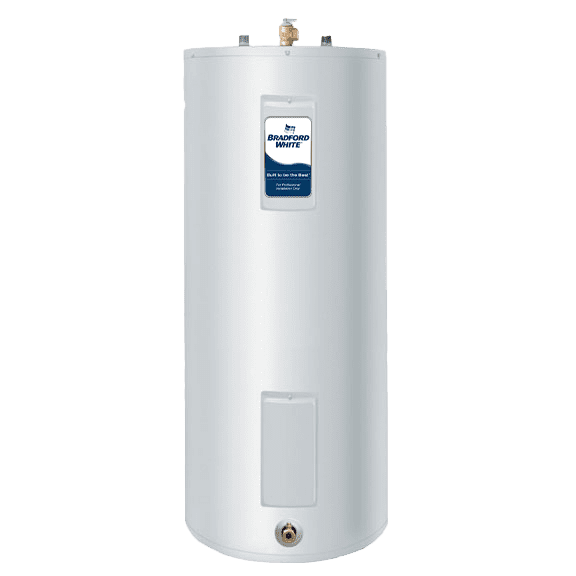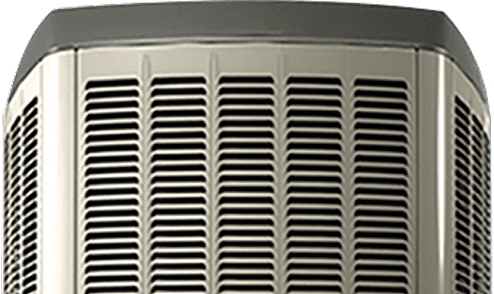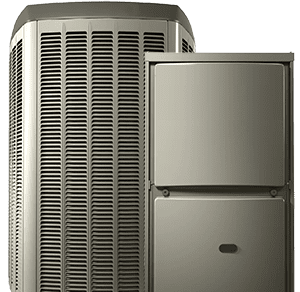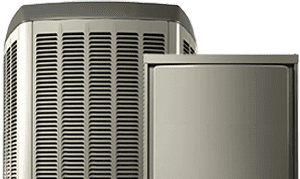Heating and Cooling Services Ottawa Homeowners Count On
Since 1933, Francis Home Environment has been a reliable name in heating and cooling for homeowners across Ottawa. With over 90 years of experience, our certified technicians are dedicated to keeping your home comfortable through every season of Canada’s unpredictable weather.
From furnace installations and AC maintenance to full HVAC system upgrades, we deliver professional, dependable service, always backed by our satisfaction guarantee. With a long-standing reputation for quality and an A+ rating from the Better Business Bureau, you can count on us for comfort you can rely on.


For more details, read our reviews:
Read our reviewsFind a home HVAC technician near you:
Serving Ottawa and nearby communities, our expert team at Francis Home Environment is committed to offering tailored solutions for all your heating, cooling, and indoor comfort requirements, wherever you reside in the area.

We know that time is critical when things go wrong.
When your comfort system breaks down, every moment counts. That’s why our team is available around the clock, weekdays, weekends, and holidays, to respond to any HVAC, plumbing, or electrical emergency. You can count on us to arrive within four hours, no matter when you call.
Our technicians are highly trained in heating, cooling, plumbing, and electrical services. Whether it’s fixing a furnace, installing an AC unit, or anything in between, we handle the job with precision and care. We know how disruptive unexpected breakdowns can be, which is why we’re focused on delivering fast, lasting solutions. Whenever you need us, we’re ready.
Find the Right HVAC Solution
Need help choosing the ideal heating or cooling system? Our experts will evaluate your home and offer personalized recommendations to match your layout, comfort preferences, and budget. From new installations to routine tune-ups, we’re just a call away.
Fast Service & Savings
Experienced, Skilled & Ready to Help
When your home needs heating, cooling, or air quality service, Francis Home Environment is here with solutions that fit. Our experienced technicians deliver dependable comfort, tailored to your space and your needs, wherever you live in the Ottawa region.
Want expert HVAC support without the wait? Reach out to our team at (613) 317-2303 , or easily set up your service appointment online.
Let’s get started with your heating and cooling consultation in Ottawa.

Our HVAC Services
In Ottawa’s unpredictable weather, reliable heating and cooling isn’t just a luxury, it’s vital to keeping your family safe and your home protected. At Francis Home Environment, we provide complete HVAC services built for Ottawa’s climate. Whether you need installation, upkeep, or urgent repairs, our certified technicians are prepared to take care of every part of your home’s heating and cooling system.
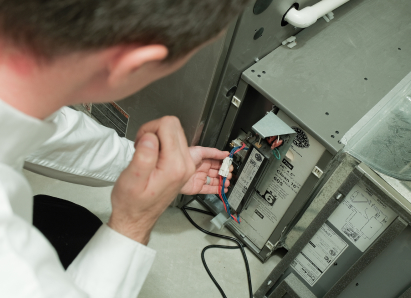
Heating Services
Boilers
Professional installation, maintenance, and 24/7 emergency service for hot water and steam boiler systems, built for Ottawa winters.
Centralized Heating Systems
Reliable, energy-efficient heating solutions that keep your entire home comfortable and evenly heated.
Furnace Installation
High-efficiency furnaces expertly installed for long-lasting performance and lower energy costs.
Furnace Repair
Fast, dependable furnace repairs for all makes and models, including same-day emergency service when you need it most.
Heat Pumps
Year-round comfort with expert heat pump installation and service, efficient heating and cooling in one smart system.
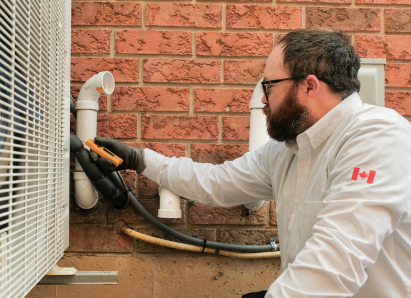
Air Conditioning Services
AC Installation
Ensure your air conditioner is properly sized and expertly installed for maximum efficiency, comfort, and energy savings.
AC Inspection
Routine inspections help catch issues early, keeping your system running smoothly and avoiding costly breakdowns.
AC Repair
For all AC brands and models, we offer prompt, dependable repairs along with round-the-clock emergency assistance when you need it most.
Heat Pumps
Enjoy year-round comfort with energy-efficient systems that provide both heating and cooling in one.
UV Air Purifiers
Clean the air you breathe with whole-home UV systems that help eliminate airborne bacteria, viruses, and allergens.
Humidifiers
Maintain ideal indoor humidity levels to protect your health, comfort, and even your home’s wood finishes.
Duct Cleaning
Breathe easier with professional duct cleaning that removes dust, allergens, and debris from your ventilation system.

Water Heaters
Water Heater Repairs
Fast service for water heater issues across all brands.
Water Heater Installation
Complete replacement or new system installation.
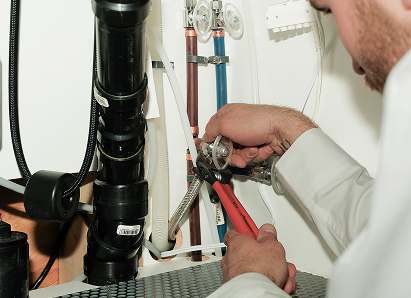
Plumbing Services
Faucets
Setup and maintenance services for water fixtures in every area of your home.
Emergency Plumbing Services
Same-day plumbing help when you need it most.
Kitec Plumbing
Removal and replacement of Kitec plumbing systems.
Plumbing Repairs
All types of plumbing problems, big or small.
Sinks
Kitchen, bathroom, and utility sink installation and repair.
Sump Pumps
System installation and service to prevent basement flooding.
Toilets
Repairs and replacements completed with care.
Water Quality
Improve your water with advanced filtration systems.
Hydro-Jetting
High-pressure water jetting technology thoroughly removes tough clogs and buildup from your plumbing system.
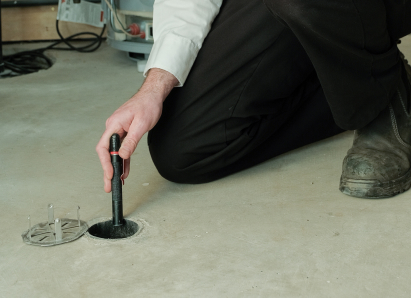
Drain and Sewer Systems
Water Cleanup & Restoration
Urgent water cleanup and restoration services after flooding or plumbing issues, including water removal, drying, and repair.
Drains
Full-service drain maintenance to prevent backups.
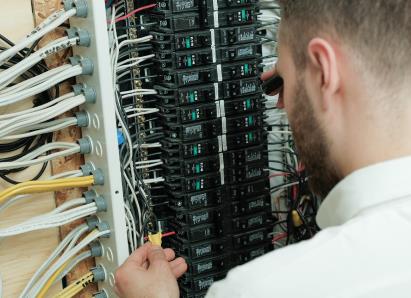
Electrical Services
Electrical Installations
Safe, code-compliant installations for new outlets, fixtures, appliances, and more, done by certified electricians.
Electrical Panel Upgrade
Increase your home’s electrical capacity and improve safety by upgrading to a modern, efficient panel.
Electrical Wiring
Whether you’re renovating or expanding, we install and update wiring to meet today’s power demands and safety standards.
EV Charger Installation
Convenient, at-home charging solutions for your electric vehicle, professionally installed and ready to use.
Generators
Backup generator services for Ottawa homes, including generator installation, maintenance, and repair. Stay prepared for power outages with reliable, professionally installed systems that ensure continuous comfort and safety
Ottawa’s Residential HVAC Experts Since 1933
Over 90 Years of Local HVAC Experience
With decades of service to Ottawa-area homeowners, we bring deep expertise and a commitment to quality to every project, big or small. Our experience means you get reliable results, done right the first time.
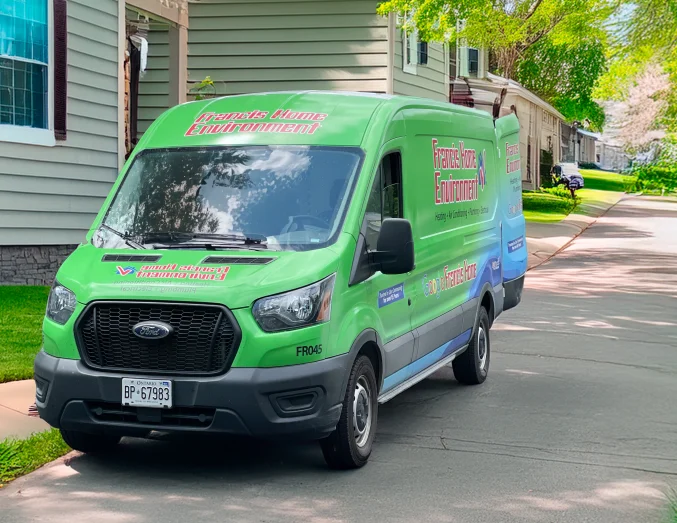
24/7 Emergency HVAC Services
Heating or cooling system acting up? Our team is on call 24/7 to get things back up and running, quickly, safely, and whenever you need us. Day or night, we’re here to restore your comfort.
Certified Technicians You Can Count On
Transparent Pricing, No Surprises
We take the time to explain every service clearly and offer upfront, transparent pricing, so you know exactly what to expect before any work starts. No surprises, just honest service.
Guaranteed Satisfaction
We don’t consider the job done until your system is running smoothly and you’re 100% satisfied with the results. Your comfort and peace of mind are our top priorities.
Whole-Home Solutions
Our integrated approach allows us to assess and service your HVAC, plumbing, water quality, and electrical systems all in one visit, saving you time while ensuring your whole home runs smoothly.
Hear from Ottawa Homeowners Who Choose Our HVAC Services
I would not hesitate to recommend Francis Home Environment for your next HVAC job.
2024/11/14 The technician, Bradley Boudreau, was thorough and meticulous. Another excellent maintenance visit. Thank you.
2024/07/29 Very happy with todays installation of our new tank water heater by Dylan, Dan and a third gentleman (did not get his name). They were able to, despite the very narrow access, get the new tank in place and installed.
2024/07/11 Another excellent maintenance visit by Francis for our AC unit. The technician, Phuong Lu (Chan), was personable and very informative. He showed me all the diagnostic information after his work and provided a copy, via e-mail, afterwards. Overall, we are very happy with Chan and the Francis team.
2023/11/30 The tech, Duy (see photo), recalled when he was last at our house to do the furnace and AC installation back 2018. He addressed all our questions and made sure we were completely happy prior to his departure.
We were devastated when we found out we had to replace our furnace and A/C but Francis Home made every steps and decisions so seamless and easy for us, and we are very happy with the decisions we made.
Feb 2025
Reno’s had just been finished in our house so we booked Duct Cleaning with Francis Home Environment. Another great job from this company and both Scott and Abdul were excellent - very professional, polite and pleasant. They got to work and had it done quite quickly. We expect the air quality in our home to be much improved and again, highly recommend Francis Home Environment!
Our technicians, Dylan and his team did a fantastic job installing our furnace and AC. Very professional, careful, timely and clean work. We are so happy with our new furnace, no more cold spots in the house, and it gives great comfort to an old house.
We would recommend the team at Francis to anyone, and already have!
